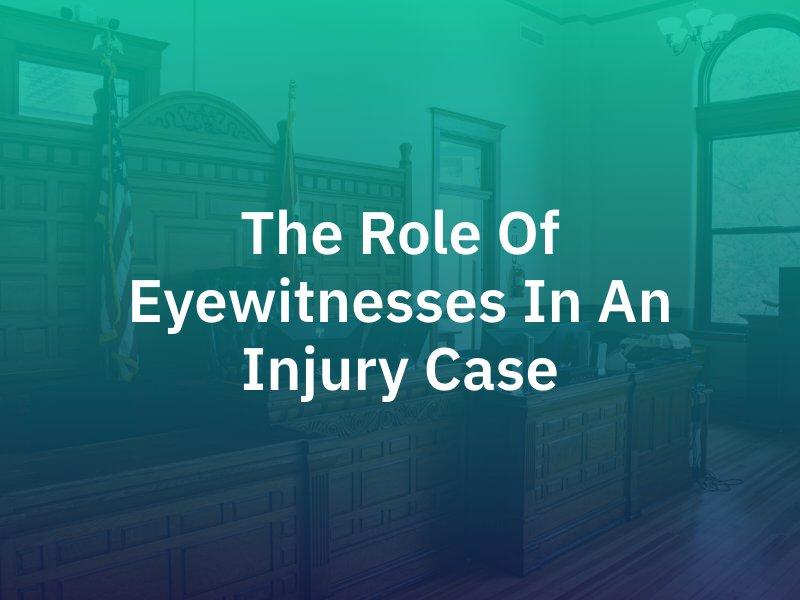What Role Do Eyewitnesses Play in a Personal Injury Case?
Posted on September 7, 2023 in Personal Injury
If you or a loved one sustains an injury due to the careless or negligent actions of another person or entity, there is often a chance of recovering compensation. This compensation could be recovered through an insurance claim or as a result of a personal injury lawsuit against the other party. These claims can be challenging, but eyewitness testimony could help prove the other party’s liability. Here, we want to discuss the strengths (and weaknesses) of eyewitness testimony.

Why Eyewitness Testimony Could Make a Difference
Eyewitnesses can help an injury claim by bolstering the rest of the evidence available. Eyewitnesses will look different depending on the type of injury that occurred. For example, an eyewitness could include:
- Coworkers who saw a work injury occur
- Fellow shoppers at a grocery store where a slip and fall injury occurs
- Drivers who stop at the scene of a car accident after witnessing the incident
- Friends or family members who witness a defective product injury
This is certainly not a complete list of scenarios where eyewitnesses could play a role in an injury claim. There are countless scenarios in which an eyewitness provides valuable information to insurance carriers or even a personal injury jury.
However, we need to remain cautious about eyewitness testimony, particularly if there is only one eyewitness or if eyewitnesses are friends or family members of a victim or a defendant.
Could Eyewitness Testimony be a Bad Thing?
Eyewitness testimony may not always be the slam dunk that individuals think it will be for their claim.
If there was only one eyewitness, then what they have to say will not be as reliable as if there are multiple eyewitnesses giving the same account. Additionally, it is not uncommon for there to be more than one eyewitness giving different versions of what they saw. When there are conflicting stories, this could lead to an insurance carrier or personal injury jury completely disregarding eyewitness testimony and focusing solely on the physical evidence gathered.
If there are friends and family members who claim to be eyewitnesses, their testimony could be biased towards one party or the other. For example, if you sustain an injury in a vehicle accident allegedly called by another party, and you had a friend or family member in the car with you, their testimony will not carry as much weight as an impartial third-party eyewitness who saw the incident. Even if your friends or family members tell the truth as far as they know the truth of what happened, the insurance carrier or jury will likely assume their story will be biased towards benefiting you.
Working With Your Injury Lawyer
If you or somebody you love has been injured due to the negligent actions of another individual, you should speak to a Portland personal injury attorney as soon as possible. When an attorney gets involved in your case, they will handle every aspect of the claim. This includes gathering the evidence needed to prove liability and speaking to any eyewitnesses available. Your attorney will examine their statements and will determine whether or not the testimony will be beneficial to you. If the testimony will not be beneficial but gets obtained by the other party, your attorney can examine the best ways to help you secure compensation even with the unhelpful testimony.
